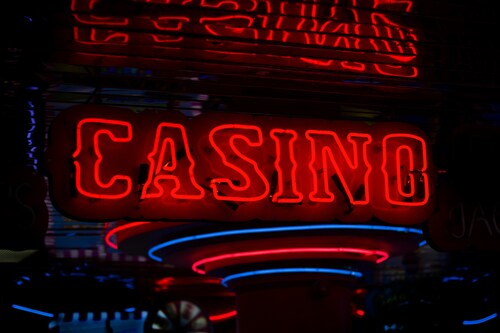Martin Scorsese’s “Casino” 1995 is one of the most impactful movies that takes the audience on a journey on how risky the Las Vegas casinos were during the 70s. Following on the lines of rough and realistic narratives along with excellent performances, Casino remains an explicitly detailed portrayal of Scorsese’s vision of the American Dream, accompanied by the shades of sin it brings to life.
Based on real events and inspired by the book “Casino: Based on the book of Nicholas Pileggi named “Love and Honor in Las Vegas” the show focuses the viewers on the reckless growth of the casino with the help of the mob’s influence. Essentially, the movie “Casino” is a crime saga movie that tackles the vices of power and cupidity. And if you want to experience the drive and atmosphere of a casino, you can start with b Online Casino, where you’ll feel like a movie character.
Plot Overview and Historical Context
The plot is set around the Tangiers Casino which is a luxurious casino in Las Vegas and at the heart of organized crime. The particular picture starts with Sam “Ace” Rothstein (Robert De Niro), who is an accurate and wise bookmaker who is being given the task by the mob to manage the casino. His buddy and thug, Nicky Santoro Joe Pesci is then commissioned to stand guard for Ace; to guarantee that the casino records high revenues. In the meantime, Ace falls in love with Ginger McKenna (Sharon Stone), an ex-con girl whose play-off with Ace forms the basis of most of the film’s dramatic actions.
Within the confines of a growing Las Vegas, “Casino’ maps out a time when the city was shifting from being controlled by the Mafia to becoming a corporate-controlled fun city. This change is depicted by the film which shows how the families related to organized crime as well as the operation of the casinos and the changes in culture at that period.
Characters and Performances
Sam Rothstein of De Niro is one of the most outstanding characters to have been portrayed in the movie in an effectively humble yet intense manner. Rothstein is very accurate and due to his knowledge of gambling and casinos, he is very helpful to the mafia. I think De Niro’s role is representative of Rothstein’s pathological character and an intra-psychic battle between his career and family.
The temperamental Joe Pesci plays a menacing part yet captures the audience with his magnetism. The character he portrays in the film is Nicky Santoro, a mafia, aggressive thug who continually evokes a feeling of menace in the movie. A certain amount of ambiguity is introduced in the story with Pesci’s portrayal of the character of Santoro, who shifts between being much like a loyal friend figure while also being a menacing figure.
Ginger McKenna portrayed by Sharon Stone is an iconic figure, to say the least, as she depicts a woman full of dreams and yet fragile. Stone deserves an honor for her acting in ‘Deadly Blessing’ as her performance was deserving of an Academy Award nomination for Best Actress. Ginger is even more complicated – on the outside, she looks like a rather confident character and a beauty who wants to get into a romantic relationship only because she needs a slightly more profound companionship. The major part of the film’s drama and emotional interest is given by her conflictual relationship with Ace.
Direction and Cinematography
Scorsese’s direction as expected was precise and pinpointed perfectly as usual. This is perhaps one of the critical facets that make “Casias” interesting in the way he was able to balance the subjective and objective experiences of the story. This is made possible through the application of voice-over provided by Scorsese which helps the audience to comprehend the different issues affecting the characters and therefore their actions.
Here the cinematography by Robert Richardson is marvelous and shows the great capacity of the director to create a unique picture of the movie. The movie gives a glamorous look at Las Vegas in the 1970s but at the same time, the negative side which is evident in the film is evident. Through the choice of a bright color palette and energetic movements in the camera, the audiences are presented with what can be considered to be the seductive and deadly aspects of the casino world.
Themes and Social Commentary
But, in essence, “Casino” is a movie about lust for money and the effect of power. The movie depicts that the desire for riches is one of the worst evils that a person can chase after since it causes the individual’s demise. Both Rothstein and Santoro are very careful about everything but at the same time, both of them have the desire to control everything and dominate and in the end are killed.
It also brings out the issue of the duality of the criminal world and the legal business world. The Tangiers Casino is a so-called ‘legal’ business but it is funded by mob money and the business is protected by the criminals/mob. This duality liberates the concept of the clear distinction between legal and illicit, it merely mimics social problems about ‘success ‘and ‘ethics’.
In conclusion, Martin Scorsese’s “Casino” is a richly layered film that combines compelling performances, meticulous direction, and a deep exploration of themes related to power and corruption. Its depiction of Las Vegas in the 1970s provides a fascinating look at a city on the brink of transformation, while its character-driven narrative ensures that the film remains engaging and relevant. Whether you’re drawn to its historical context, its dramatic depth, or its cinematic craftsmanship, “Casino” is a film that continues to captivate and provoke thought long after the credits roll.




